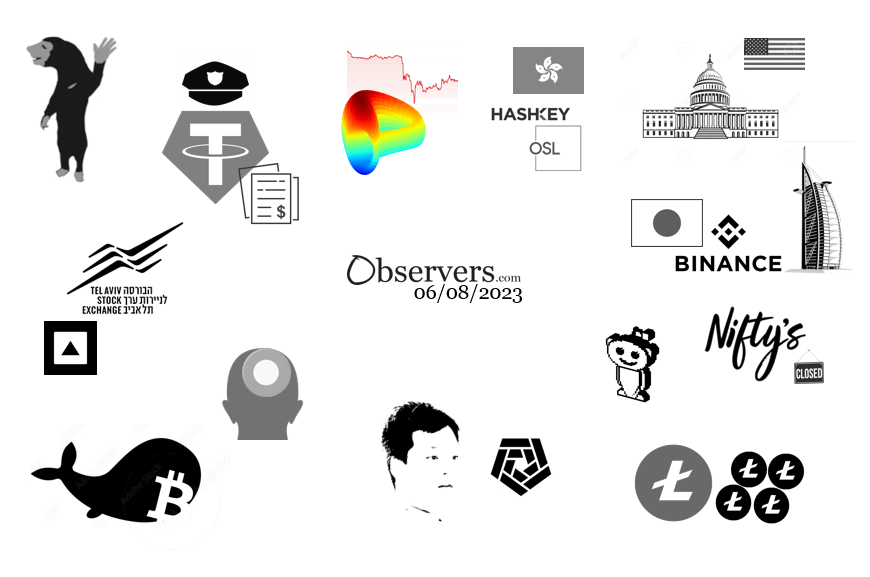
This week, a Chinese zoo felt the need to assure the general public that its sun bears were not people in costume, after a video went viral showing Angela the sun bear standing on her hind legs and waving at visitors in a very human-like manner.
Conspiracy theorists on social media had a field day, although rumors that Justin Sun (Bear) is really just Angela dressed up in a human costume could not be confirmed.
Meanwhile in crypto-land, Litecoin experienced its third halving event a full twenty days earlier than initially expected, and Bitcoin whales have given up 255,000 BTC since May 30, marking the largest rate of monthly decline in history.
U.S. lawmakers appear to be finally homing in on the clear crypto regulation that the industry has been crying out for in the region. However, Binance appears to be giving up on the U.S. and Europe, with a renewed focus on the Middle and Far East.
This may become an industry-wide trend as both regions seem far more crypto-positive than western lands. Israel's public stock exchange partnered with Fireblocks this week, to build an infrastructure for digital asset products and services. And Hong Kong issued its first licenses to exchanges allowing crypto trading for retail investors.
The NFT market seems to be evolving, perhaps indicating a newfound maturity. Reddit continued making inroads with the fourth generation of its reasonably priced (and even free) Unique Avatars collection. Meanwhile, Nifty marketplace has shut down, citing an inability to secure funding for an announced platform update.
Arkham Intelligence announced the first successfully claimed bounty on its 'Intel-to-Earn' platform, with $160 million of undisclosed Terra/Luna holdings uncovered. Although there was no bounty required by the blockchain sleuths who traced this week's BALD meme-coin rug-pull back to Sam Bankman-Fried.
Tether blocked a potential hack at source (leaving little to keep the sleuths busy), by blacklisting an account and preventing a $20 million loss. It also released its latest proof of consolidated reserves, with the largest chunk going into U.S. Treasury Bills.
Finally, the $50 million Curve finance hack highlighted DeFi's ongoing issues with security, although on this occasion the fault lay with a vulnerability in the Vyper programming language used for coding the platform.
Following the hack, Curve's DAO token dropped in value, exposing founder Michael Egorov to the potential liquidation of $100 million of loans backed by his holdings, which could also have caused havoc in the wider DeFi market.
Fortunately, Justin Sun was around to buy some of Egorov's discounted CRV (the token, not the mid-sized Honda SUV), and the crisis has passed... for now. Rumors that Egorov sent several crates of fruit to a certain Chinese zoo could not be confirmed.
